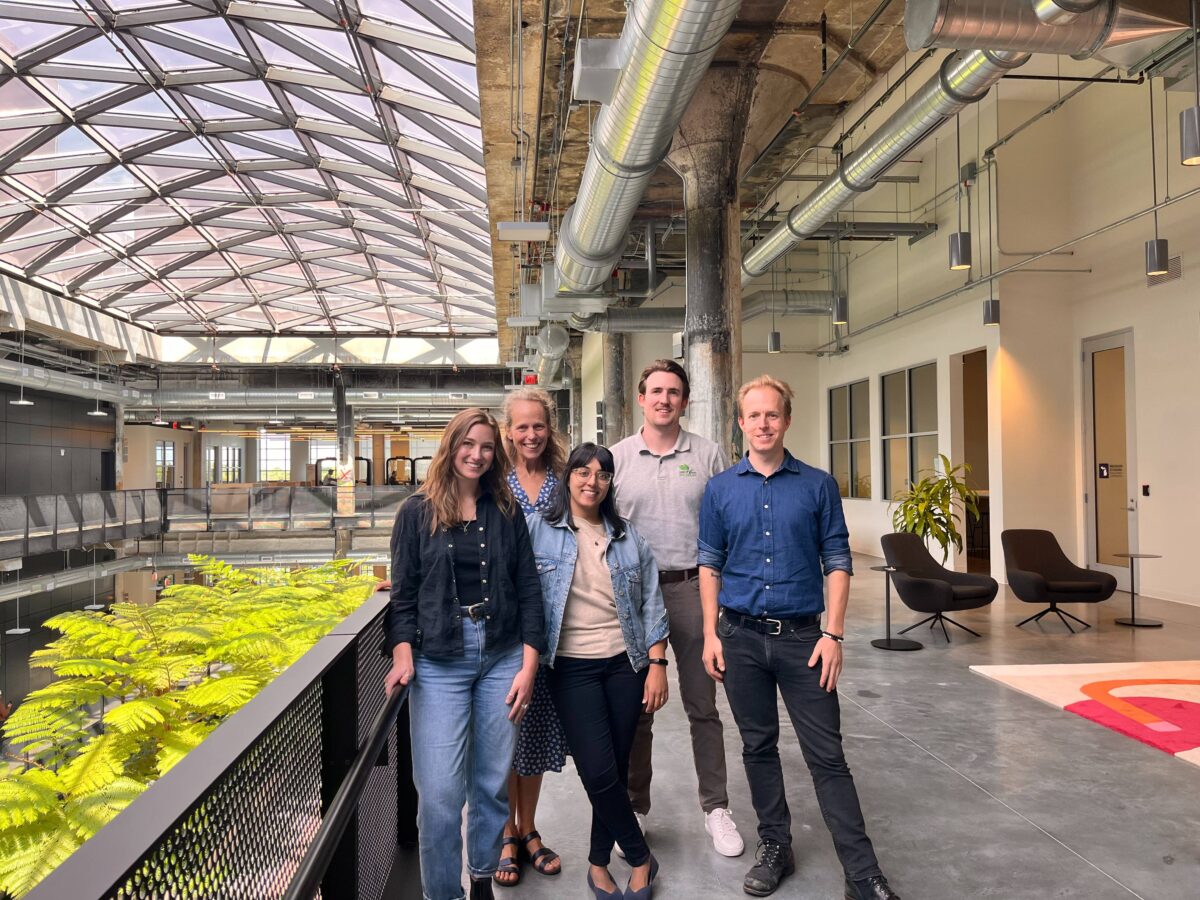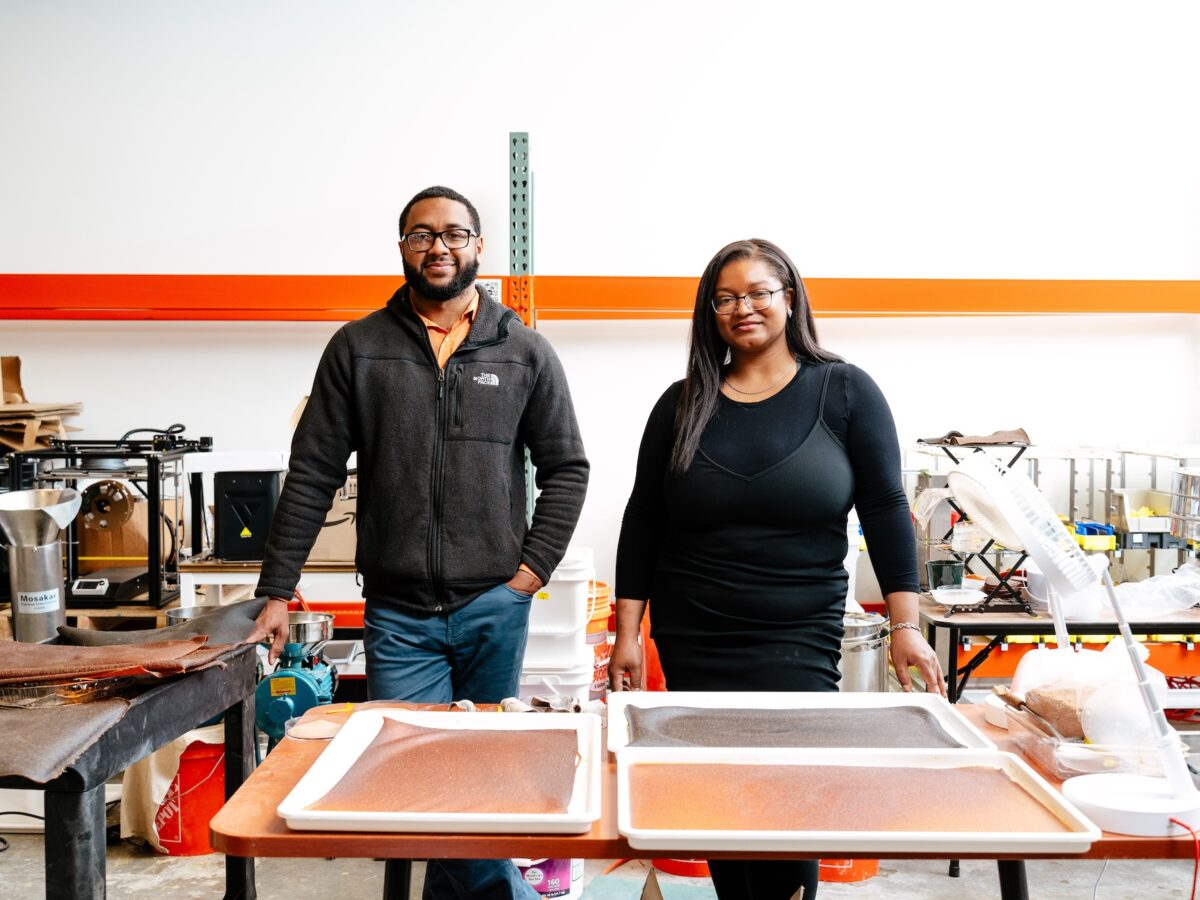Overview:
-The Michigan Climate Investment Hub will operate out of the Newlab collaborative workspace.
-"The Hub is a catalyst for accelerating clean energy investment," says Ben Dueweke, its director.
-Michigan Saves, a nonprofit green bank, is a founding member of the climate investment organization.
A new initiative aimed at accelerating clean energy investment in Michigan quietly launched this spring at Newlab Detroit.
The Michigan Climate Investment Hub will bring together financial institutions, nonprofits, government agencies, and private investors under one roof to innovate financing strategies for clean energy, energy efficiency, and resilience projects across the state.
The Hub is led by Director Ben Dueweke, who described it as a catalyst for collaboration.
“The Hub is a catalyst for accelerating clean energy investment. By being in the same space, we can share ideas, learn from one another, and bring together the financial and energy expertise needed to close market gaps and spark innovation,” said Dueweke, who is a member of Planet Detroit’s advisory board.
The Hub will operate out of Newlab, a collaborative workspace in Detroit that houses startups, researchers, and nonprofits working on climate and mobility solutions. Members will have access to shared space, training, and strategy sessions designed to cross-pollinate expertise from finance, energy, and community development sectors.
“Working at Newlab gives us incredible energy. Having our team side-by-side with other Hub members creates opportunities for trainings, strategy sessions, and the kind of collaboration that leads to new ideas taking shape,” Dueweke said.
Michigan Saves sees innovation opportunity
Among the Hub’s founding members is Michigan Saves, the nation’s first nonprofit green bank. CEO Sally Talberg said her organization will have staff working full-time from the Hub.
“We’re really excited to be part of this Hub because it creates opportunities to spur innovation,” Talberg said. “We may have strong financing tools, but there are always ideas for further innovation. Being around others and figuring out how to collaborate is key because there’s so much work that needs to be done.”
The Hub will also serve as a forum for “shared learning” among member organizations, such as workshops on financial literacy and climate investment tools, Talberg said. That collaborative approach, she noted, was critical to Michigan Saves’ early success.
“When Michigan Saves was first formed, we developed our programs through a collaborative process with credit unions and other partners,” the CEO said. “I’d love to see more of those types of innovations happen through the Hub.”
A platform for expanding PACE, efficiency financing
Other founding members include Lean & Green Michigan, which administers the state’s Property Assessed Clean Energy (PACE) program. CEO Mary Freeman said the Hub provides a way to expand awareness of financing tools that many businesses still don’t know exist.
“Lean & Green Michigan has facilitated over $300 million of energy efficiency and renewable energy financing and runs the eighth largest statewide PACE market in the nation, but many Michigan business leaders are unfamiliar with the opportunity,” she said. “The [Hub] provides an ideal vehicle for us to spread the word and collaborate with other sustainability-oriented businesses.”
PACE financing allows building owners to fund efficiency upgrades and renewable energy installations through long-term property tax assessments. Sixty-one local governments, representing 80% of Michigan residents, have opted into the market. Still, Freeman said many buildings remain inefficient and new construction often misses opportunities to maximize energy performance.
MORE PLANET DETROIT REPORTING
Detroit’s Eden Park: A $21 million bet on health, wellness in polluted community
In Detroit’s 48217 ZIP code, the $21 million Eden Park Community Project aims to transform a 6-acre lot into a hub for health and wellness. The vision includes a Montessori school, community garden, amphitheater, and a secure area for Alzheimer’s patients and caretakers.
Banana peels to coasters: Is this the future of food waste?
At Michigan Central’s Newlab, EcoSphere Organics is pioneering biodegradable materials from food waste, while apps like Flashfood and Food Rescue US are tackling food surplus by connecting it to those in need.
Black Tech Saturday brings together Detroit climate and health innovators
Climate and public health entrepreneurs find community in Detroit’s growing Black tech ecosystem.
Moving forward despite federal uncertainty
The Hub’s launch comes amid policy uncertainty in Washington, where the Trump administration has moved to roll back climate programs and cut federal funding. Talberg said state-level support for energy efficiency and clean energy remains strong, and financing innovation will be critical to sustaining momentum.
“There’s been bipartisan support for energy efficiency programs in Michigan for the last 15 years,” Talberg said. “I’m optimistic we can continue to expand financing and investment opportunities even amid changes at the federal level.”
For Michigan Saves, joining the Hub also means returning to its roots. Several of its early programs, including efforts to finance energy efficiency upgrades for Detroit restaurants, grocery stores, and houses of worship, began in the city before scaling statewide.
“The Hub strengthens our commitment to Detroit,” Talberg said. “It’s exciting to be back in the city where some of our most innovative programs first took shape.”
Follow the Michigan Climate Investment Hub on LinkedIn.





